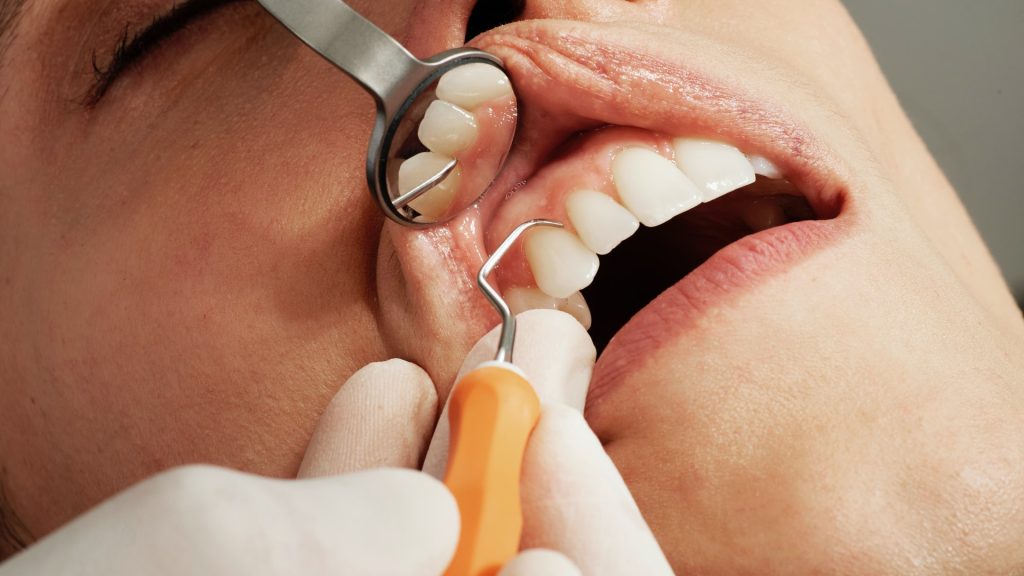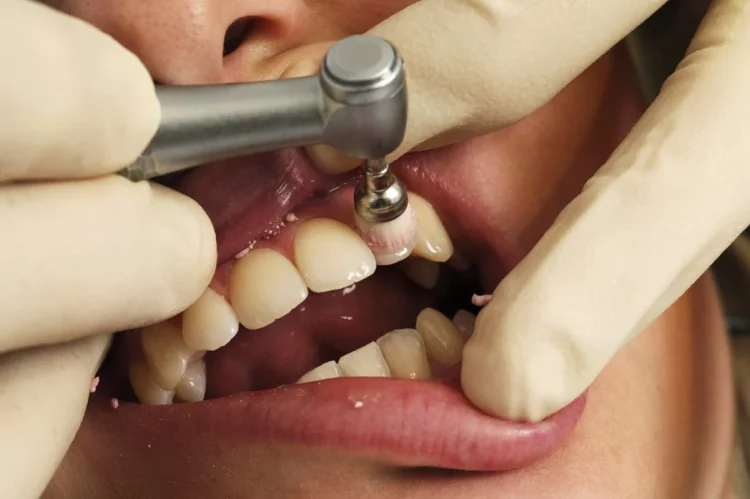Introduction
Maintaining good oral health is essential not only for a beautiful smile but for overall well-being. Among the various aspects that contribute to oral health, diet plays an undeniably significant role. While brushing and flossing are fundamental practices for keeping teeth clean, the food we eat also directly impacts the strength of our teeth and the development of cavities. Cavities, or dental caries, are one of the most common oral health problems, caused by bacteria feeding on sugars in the mouth and producing acids that erode tooth enamel. However, the right food choices can help prevent this decay, support the remineralization of enamel, and maintain healthy gums.
In this essay, we will explore the types of foods that are most beneficial for oral health, focusing on those that strengthen teeth, prevent cavities, and promote overall oral hygiene. From foods rich in calcium and vitamin D to those that encourage saliva production, we will dive into the science behind each nutrient’s role in tooth health and discuss practical tips for incorporating them into your diet. Additionally, we will also touch upon foods that should be limited or avoided to protect your teeth from decay and other dental problems.
1. The Importance of Diet for Oral Health
How Diet Affects Tooth Health
To truly understand how food impacts oral health, we must first understand the mechanics of tooth decay. The mouth is home to a variety of bacteria, some of which are beneficial and others that can cause damage. These harmful bacteria feed on the sugars we consume, producing acid as a byproduct. This acid can erode tooth enamel over time, leading to cavities. A diet that promotes strong enamel, healthy gums, and the ability to resist acid attacks is key in preventing dental issues.
Key Nutrients for Healthy Teeth
Certain nutrients are particularly important for maintaining healthy teeth. These include:
- Calcium: Vital for strong teeth and bones.
- Vitamin D: Helps the body absorb calcium and promotes bone health.
- Phosphorus: Works with calcium to strengthen tooth enamel.
- Vitamin C: Essential for gum health and healing.
- Fluoride: Strengthens enamel and helps resist decay.
2. Foods Rich in Calcium: The Building Block for Strong Teeth
Why Calcium Is Essential for Teeth
Calcium is perhaps the most well-known nutrient when it comes to bone and tooth health. The enamel of the teeth is largely composed of calcium, and it is vital for maintaining their strength and resistance to cavities. Without sufficient calcium, teeth become weak and more susceptible to decay.
Calcium-Rich Foods
Here are some of the best sources of calcium:
- Dairy Products: Milk, yogurt, and cheese are excellent sources of calcium. The calcium in these foods is highly bioavailable, meaning the body can absorb it easily.
- Leafy Greens: Kale, collard greens, and bok choy are among the best non-dairy sources of calcium.
- Fortified Foods: Certain foods like plant-based milks (soy, almond, and oat) are often fortified with calcium.
- Fish with Bones: Canned salmon and sardines provide calcium, as the bones are edible and rich in this essential mineral.
- Tofu: Tofu made with calcium sulfate is a great option for vegetarians and vegans.
How Calcium Helps Prevent Cavities
Calcium helps to strengthen the enamel, making it more resistant to acidic attacks from harmful bacteria. It also plays a key role in remineralization, where lost minerals are replaced, helping to repair early stages of tooth decay before they become cavities.
3. Vitamin D: The Catalyst for Calcium Absorption
Why Vitamin D is Important for Oral Health
Vitamin D is not only essential for bone health but also plays a crucial role in helping the body absorb calcium. Without adequate vitamin D, your body cannot effectively utilize the calcium you consume, regardless of how much you eat. This is why vitamin D is a vital partner to calcium in maintaining strong, healthy teeth.
Vitamin D-Rich Foods
- Fatty Fish: Salmon, mackerel, and sardines are rich sources of vitamin D.
- Egg Yolks: The yolks contain a small but significant amount of vitamin D.
- Fortified Foods: Many foods, such as milk, orange juice, and cereals, are fortified with vitamin D.
- Sun Exposure: The body produces vitamin D naturally when exposed to sunlight. Just 10-30 minutes of sunlight a few times a week can provide adequate amounts.
How Vitamin D Supports Teeth Health
By increasing calcium absorption, vitamin D helps build and maintain strong enamel. It also plays a role in regulating the immune system, which is essential for defending against oral infections and gum disease.

4. Phosphorus: The Unsung Hero for Tooth Enamel
Why Phosphorus is Key for Healthy Teeth
Phosphorus is the second most abundant mineral in the body and is essential for the formation of tooth enamel. It works in tandem with calcium to build strong bones and teeth. Phosphorus is particularly important for remineralization, as it helps repair damage to the enamel that has been caused by acid attacks.
Phosphorus-Rich Foods
- Meat and Poultry: Chicken, turkey, and beef are great sources of phosphorus.
- Fish and Seafood: Tuna, salmon, and shrimp are excellent sources.
- Nuts and Seeds: Sunflower seeds, almonds, and walnuts provide a plant-based source of phosphorus.
- Beans and Lentils: These are good non-animal sources of phosphorus.
How Phosphorus Supports Oral Health
Phosphorus helps keep the enamel intact by supporting the mineralization process. It prevents the loss of important minerals from the teeth, ensuring they remain strong and capable of resisting damage from harmful acids.
5. Vitamin C: The Guardian of Gum Health
Why Vitamin C is Important for Gums
Vitamin C is essential for healthy gums, as it supports the production of collagen, a protein that helps maintain the structure of gums and other tissues in the mouth. A deficiency in vitamin C can lead to bleeding gums, a condition known as scurvy, which can make gums more vulnerable to infections.
Vitamin C-Rich Foods
- Citrus Fruits: Oranges, grapefruits, lemons, and limes are packed with vitamin C.
- Berries: Strawberries, raspberries, and blueberries are rich in vitamin C and antioxidants.
- Bell Peppers: Red, yellow, and green bell peppers contain high levels of vitamin C.
- Kiwi: This tropical fruit is another excellent source of vitamin C.
- Leafy Greens: Spinach and broccoli are also good sources of vitamin C.
How Vitamin C Helps Prevent Gum Disease
Vitamin C plays a key role in maintaining the integrity of the gums. It helps prevent inflammation and infection, reducing the risk of gum disease. It also accelerates the healing of wounds in the mouth, such as those caused by gum irritation.
6. Foods That Encourage Saliva Production
Why Saliva is Important for Oral Health
Saliva plays a crucial role in protecting the teeth and gums. It helps neutralize acids, wash away food particles, and provide disease-fighting substances that reduce the growth of harmful bacteria. It also aids in remineralizing the enamel, which helps to prevent cavities.
Saliva-Stimulating Foods
- Crunchy Fruits and Vegetables: Apples, carrots, and celery are all natural saliva stimulants.
- Cheese: Certain cheeses, like cheddar, stimulate saliva production and can help neutralize acids in the mouth.
- Sugar-Free Gum: Chewing sugar-free gum encourages saliva flow, helping to wash away food particles and bacteria.
- Green Tea: Green tea contains compounds that promote saliva production and protect against harmful bacteria.
7. Foods to Avoid for Healthy Teeth
While there are many foods that promote oral health, there are also those that should be limited or avoided to protect your teeth. These include:
- Sugary Snacks and Drinks: Sugar feeds harmful bacteria that cause tooth decay.
- Acidic Foods: Citrus fruits, soda, and wine can erode tooth enamel over time.
- Sticky Foods: Candies and dried fruits can stick to teeth and promote the growth of bacteria.
- Starchy Foods: Foods like white bread and chips can break down into sugars in the mouth, contributing to plaque buildup.
Conclusion
A healthy diet plays a critical role in strengthening teeth, preventing cavities, and maintaining optimal oral health. By focusing on foods rich in calcium, vitamin D, phosphorus, and vitamin C, and promoting saliva production, you can help protect your teeth from decay and gum disease. Additionally, understanding which foods to avoid—such as sugary, acidic, and sticky foods—can further contribute to a healthy, cavity-free smile.
For long-term oral health, it is essential to adopt good eating habits alongside proper oral hygiene practices, including regular brushing and flossing, and professional dental check-ups. By making wise food choices, you can enjoy a lifetime of healthy teeth and gums, reducing the risk of cavities and other dental problems.













































Discussion about this post